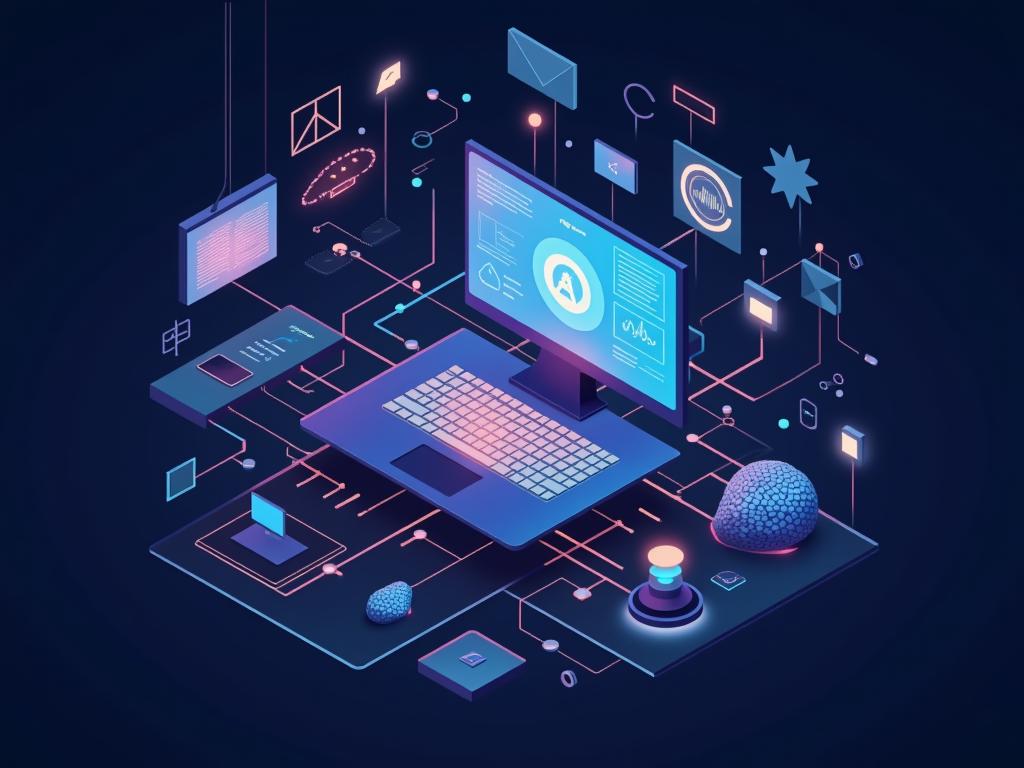
Artificial Intelligence (AI) is rapidly transforming various industries, and web development is no exception. In this article, we explore how AI is shaping the future of web development and what it means for businesses and developers.
The Current State of AI in Web Development
AI is already making significant inroads in web development, from design tools that can generate layouts based on simple prompts to coding assistants that help developers write better code faster. Automated testing, content generation, and personalization are other areas where AI is being applied successfully.
AI-Powered Design and User Experience
AI design tools are becoming increasingly sophisticated, capable of creating website layouts, color schemes, and even complete design systems based on user preferences and industry standards. These tools are not replacing designers but rather enhancing their capabilities and speeding up the design process.
Similarly, AI is revolutionizing user experience by enabling websites to adapt to individual users in real-time. From personalized content recommendations to dynamic navigation based on user behavior, AI is helping create more engaging and effective user experiences.
Intelligent Coding Assistants
AI coding assistants like GitHub Copilot and TabNine are transforming how developers write code. These tools can suggest code completions, generate entire functions, and even help refactor existing code. As they continue to improve, they promise to make developers more productive and code more reliable.
Automated Testing and Quality Assurance
AI is streamlining the testing process by automatically generating test cases, identifying potential bugs, and even fixing simple issues without human intervention. This not only speeds up development but also helps ensure higher quality code with fewer defects.
Natural Language Processing in Web Applications
Natural Language Processing (NLP) is enabling more sophisticated chatbots, voice interfaces, and content analysis tools. As NLP technology continues to advance, we can expect web applications to become more conversational and intuitive to use.
Predictive Analytics for Web Performance
AI-powered analytics tools can predict user behavior, traffic patterns, and potential performance issues before they occur. This allows developers and businesses to optimize their websites proactively, ensuring better performance and user satisfaction.
Challenges and Considerations
Despite its promise, AI in web development also presents challenges. Concerns about data privacy, algorithmic bias, and the need for human oversight remain important considerations. Additionally, there's the question of accessibility and ensuring that AI-driven solutions are inclusive for all users.
The Road Ahead
As AI technology continues to evolve, we can expect even more innovative applications in web development. From fully autonomous website creation to advanced content generation and sophisticated personalization, the possibilities are vast.
For businesses and developers, staying informed about these advances and understanding how to leverage them effectively will be key to remaining competitive in the digital landscape.
Conclusion
AI is not just changing web development—it's revolutionizing it. By embracing AI tools and techniques, businesses can create more effective websites and applications while developers can focus on higher-level problems and creative solutions. The future of web development is intelligent, adaptive, and exciting.
Comments (3)

Sarah Williams
2 days agoI'm glad to hear that, Michael! Which strategies have been most effective for your business?
Reply
Robert Johnson
1 day agoI would add that local SEO is particularly important for brick-and-mortar businesses. Don't forget to claim your Google Business Profile and ensure your NAP (Name, Address, Phone) information is consistent across all directories.
Reply
Michael Brown
3 days agoGreat article! I've been implementing some of these strategies for my small business and have already seen an improvement in our search rankings.
Reply